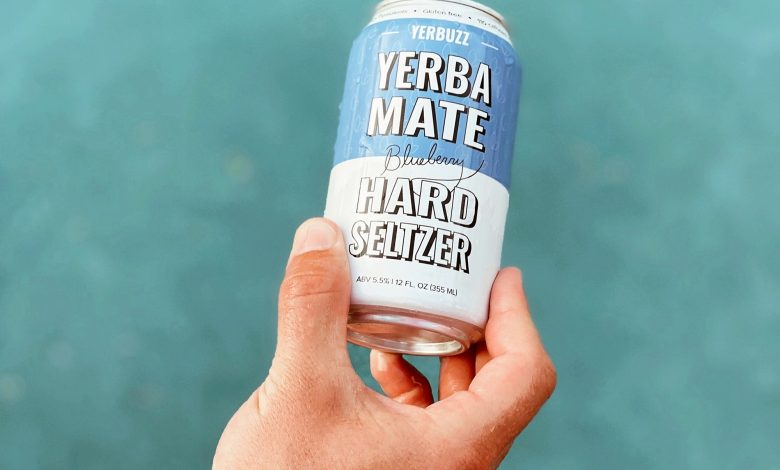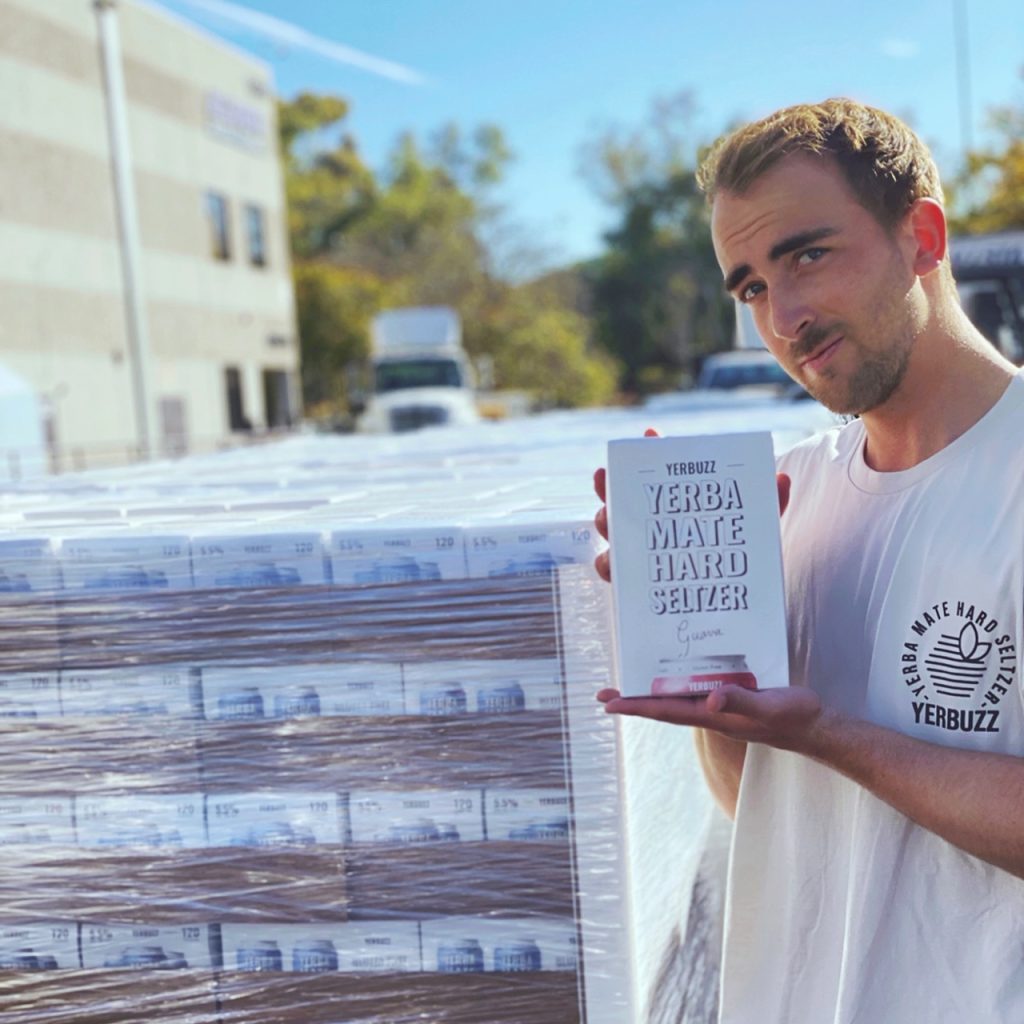
Though hard seltzer is the fastest-growing alcoholic beverage segment, most people—even those who consume them—don’t give them much serious thought. But Daniel Nierman has for some time. It’s in his nature to do so. A homebrewer since before it was legal for him to consume what he was crafting, he has spent years soaking up as much nth-level information as he can about the fermentation sciences. That includes working in the brewing industry before moving over to hard kombucha and ascending to the role of Lead Brewer and Cellarman at Chula Vista’s Boochcraft. Eventually, his on-the-job and extra-curricular studies helped shape a new aspiration: going into business for himself. Surprisingly, it wasn’t beer or ‘booch that he aimed to make a splash in, but hard seltzer. In wading into that liquid medium, Nierman endeavored to make something more wholesome care of his recently debuted interest, Yerbuzz.
For most breweries, making hard seltzer is a fairly simple extension of what they already do, but Nierman says it took a lot of study, refinement and work to get out of the starting blocks.
“It was quite the journey. I made 25 test batches over four months and was in constant collaboration with three labs that all told me to go in separate directions,” says Nierman. “In my fermentation studies, I found most hard seltzers to be made with sucrose as opposed to dextrose, because it is cheaper. Fermenting with sucrose, which is glucose and fructose, leaves quite a bit of carbohydrates behind from the residual fructose and the taste the fructose leaves behind isn’t good. It’s also not healthy to consume large amounts of fructose, so we use non-GMO dextrose and, although it costs more, it ferments cleaner and drier.”
Nierman also worked with a quartet of filter companies to ensure his seltzer base would be as neutral as possible and devoid of undesirable off-flavors he says are prevalent in the marketplace. Yerbuzz’s seltzer base is filtered three times to strip away as many phenols as possible. From there, all-natural, fruit-extracted flavors are infused along with a differentiating ingredient the company’s name hints at: yerba mate.
Touted by many as an organic “super food” tea, yerba mate is packed with theobromine (a calming chemical also present in chocolate), flavonoids, sapponins, caffeine, vitamins and minerals, but the primary reason it’s infused into Yerbuzz seltzers is to solve what Nierman calls the “great seltzer conundrum.”
“The great seltzer conundrum is balance. There is a great lack of depth in many hard seltzers, but similar to hops in beer, yerba mate acts as a bittering component that balances out the one-dimensional sweetness that many hard seltzers are plagued with,” he says. “And beyond just acting as a bittering compound, yerba mate really assists in making seltzer a more well-rounded and enjoyable beverage.”

So far, Yerbuzz’s product line consists of blueberry and guava versions of its hard seltzer. In typically thorough fashion, Nierman tested more than 160 different flavor profiles before landing on his initial offerings. Those products hit shelves last month, depleting the company’s initial stock. More is currently fermenting away, and Nierman is contemplating expanding his portfolio to possibly include dragon fruit, passion fruit or hibiscus seltzers.
Yerbuzz is a locally grown operation. Nierman resides in Rancho Santa Fe and is selling the fruits of his first production runs in-person throughout San Diego, however, Yerbuzz seltzers are produced in 60-barrel batches in the Northern California city of San Carlos via a contract-brewing relationship with Devil’s Canyon Brewing. Though he’s starting in his home county, Nierman hopes to stretch distribution throughout California as quickly as possible. From there, he aims to target Colorado before expanding to produce and distribute hard seltzer on the East Coast and sell Yerbuzz products from New York State to the Midwest.
Nierman’s production goal for 2021 is 2,000 barrels, though he says he wouldn’t be surprised to notch as many as 5,000 barrels. It all depends on whether or not certain question marks in our currently uncertain world transform to exclamation points. One thing he is sure of is that Yerbuzz won’t have a local tasting room anytime soon. He says the demand for something like that isn’t currently there with hard-seltzer fans and, even if it was, trying to operate a hospitality venue in the age of COVID-19 is too dicey a proposition. So, for now, like so many others in the beverage industry, he will focus on getting his canned product to the masses. In the process, he hopes to supplant what he sees as inferior products.
“So many hard seltzers are boring, terribly fermented, overly sweet and overly flavored with overtly fake aromas and tastes. We want that stuff gone and we want more interesting, crafty creations to take over,” says Nierman. “My goal wasn’t to make another hard tea or seltzer. I wanted to take several methodologies from beer, hard seltzer, kombucha and wine, and apply them to make a uniquely delicious beverage.”

